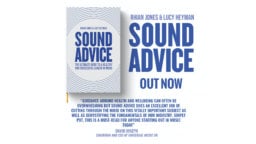
So far, the music biz has avoided a Hollywood-style sexual harassment scandal – but, says Rhian Jones (pictured inset), we should be taking a long, hard look at ourselves…
Anyone that cares about the public reputation of the global music business might want to buy Sony boss Rob Stringer a quiet drink next time you see him.
The last time the industry took a hefty kicking from the global newspapers, it was for being presumed as lazy idiots in the face of the Napster disaster – and it took a decade for that opinion to correct itself.
In May, after barely a month in the job as CEO of Sony Music, Stringer axed LA Reid as head of Epic Records following sexual harassment allegations.
Now consider this: what if Stringer had acted slower? What if, in fact, he’d sat back and waited six months more?
That would have meant the LA Reid debacle would have dragged on post-Harvey Weinstein. Post-the biggest sexual bullying scandal to hit the headlines for eons.
The music business would be under a very uncomfortable media microscope right now – one searching for any scrap it could find to fuel a running ‘culture of sexual harassment’ scandal on Hollywood’s sister entertainment industry.
PR-wise, then, Stringer’s quick action probably avoided a lot of muck-raking for the industry. But that’s not to say there isn’t a sexual imbalance out there – nor men, and I’m afraid it is men, taking advantage of it.
Back when I was a young and inexperienced music business journalist, being asked if I was bringing my bikini to Midem by a male executive at least twice my age was eyebrow-raising, to say the least. Being taken on a tour of a revered recording studio by a producer, who then made his alternative intentions crystal clear once the door was closed, was uncomfortable.
There was also that time a (non-UK) senior label figure had a severe case of wandering eye during an interview, and whose tone turned icy when I mentioned the existence of my boyfriend.
“These stories take place within a music industry culture where women, and sometimes men, are objectified by people with power.”
While these stories are clearly far less serious than the experiences of Weinstein’s victims, they all take place within a music industry culture where women, and sometimes men, are objectified by people with power. More perniciously, it’s a culture where the impressionable nature of youth is not only taken advantage of, but actively targeted.
I’ve heard horror stories from women I know in the music business along these lines. And the scale of it is frightening: in November, nearly 2,000 women working in the Swedish music business signed a letter declaring they had experienced sexual abuse, harassment or bullying during their time in the industry.
What we know: within industries where work and play often take place in the same environments, questionable behaviour – fuelled by drugs and alcohol – pushes the sliding scale of morality into negative realms.
The music business is, famously, relationship-based. An implied notion of, ‘If you don’t play along, you’re not my friend, and if you’re not my friend, you won’t get ahead,’ means foul play can become unchecked and even outright ignored. Case in point: why was L.A Reid’s behaviour allowed to go unchallenged for so long?
The good news is that music companies are making real efforts to improve gender disparity at senior level. Alongside generous maternity and paternity leave packages and a more flexible attitude around working hours, weening out sexism is an integral part of that.
But what about the bigger objective: to detoxify ingrained, unethical behaviour relating to gender relationships in music?
Should we name and shame perpetrators? Aside from a handful of powerful characters – who might only be removed by their company boards with the embarrassment of trial in the headlines – I’m not convinced that public vilification is the answer.
“are you an older man with a thing for much younger women (or men)? If so, why is that? Is it healthy?”
By fighting back with hate, we risk dividing those that work in the industry even further (not to mention sending legal costs into figures few can afford). What we really need is a culture shift. Predatory and intimidating behaviour has become normalised – both within work and the world at large – and it’s going to take a lot of effort from everyone to reverse that.
Men that work in the music industry should be asking themselves some serious questions: do you genuinely view the women that you work with as completely equal counterparts? Have you ever made advances on someone who gave you no evidence of interest – and did you honestly walk away when their physical and verbal signals told you no?
Could you better support those around you who might be experiencing the wrong kind of behaviour from others? Do you condone it by laughing along when being told stories of such exploits, or do you keep the peace and ignore it?
Here’s a very simple one: are you an older man with a thing for much younger women (or men)? If so, why is that? Is it healthy?
These are painful but important questions.
Put simply, are you a decent person who respects and cares for others, and stands up for them if required?
If the honest answer is no, apologise to those you’ve wronged, and take steps to change. Don’t forget that someone may soon seek retribution in a very public manner.
When it comes to what music business companies can do, Sir Lucian Grainge has led the charge: reports suggest that UMG offers staff training to inform appropriate exec behaviour around women, while an anonymous tip line exists for female execs to highlight wrongdoing.
Here’s another suggestion: appoint an independent counsellor whom employees can turn to if experiencing abuse. The nightmare of sexual violation does not end when the deed is done.
“These are painful but important questions.”
And if there’s fault in your company, find it, weed it out – and fund progressive solutions. It will improve trust in your workforce, which in turn will improve performance.
I was once labelled “vicious” simply for trying to maintain a professional tone with a man I’d never met over email. We’re not being vicious, unfriendly, prudish or boring – we’re protecting ourselves.
It’s high time the business we work in made a sustained effort to do the same.




